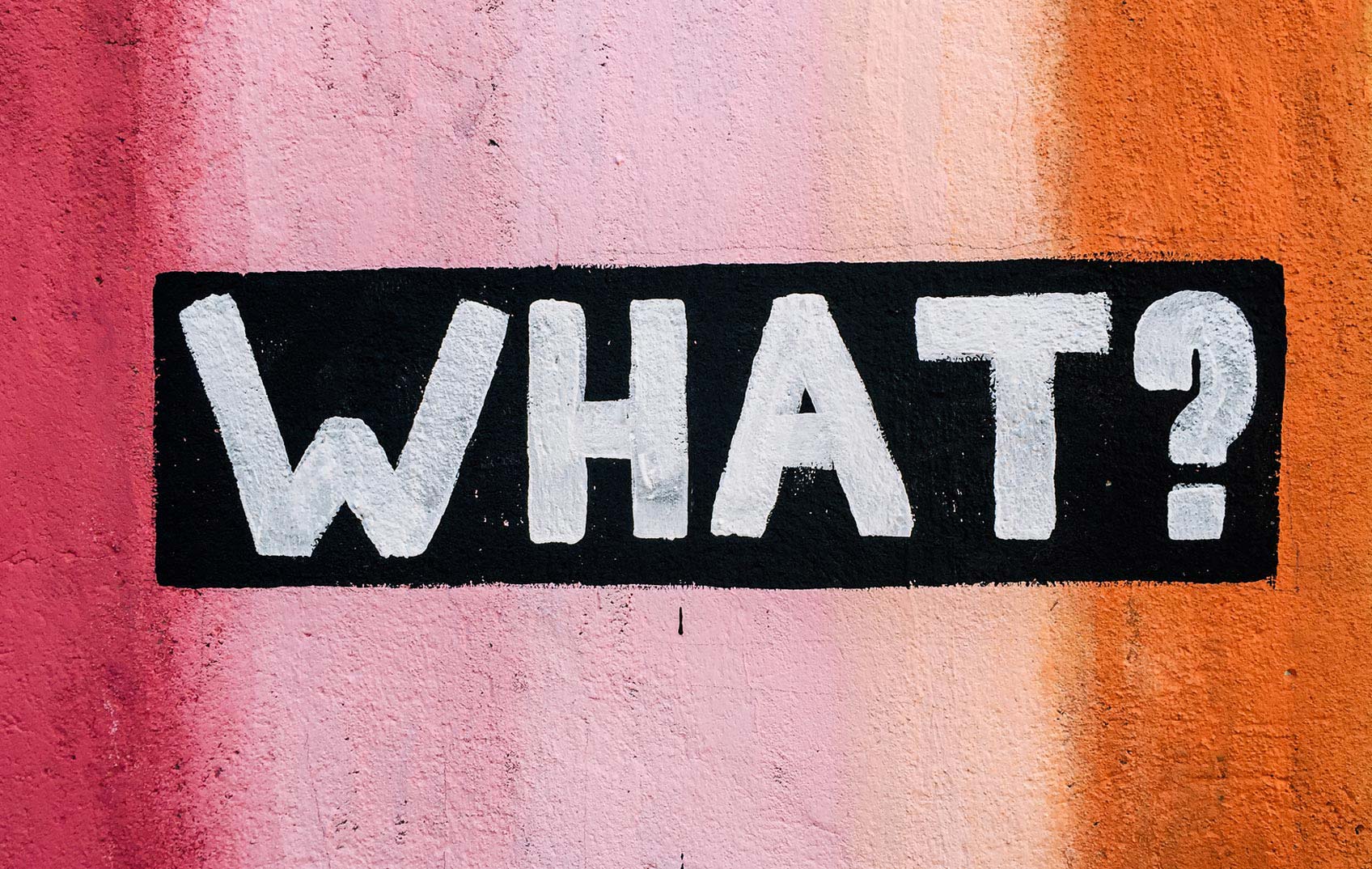Key money terms explained
Ever asked a parent, guardian or teacher a money question only to be met with a confused shrug? Us too. To help, here's our list of essential money terms explained

APR
If you’re borrowing money (think car loan or credit card) then you need to know what APR (or Annual Percentage Rate) means. It’s the official interest rate for your credit-based product – that means the cost to you for borrowing money. So, if you borrow £100 for something and the APR is 15%, you’ll have to pay back a total of £115 at the end of the year. Look for the lowest percentage when shopping around. When it comes to APR, bigger is definitely not better.
Bankruptcy
For a person or a business with debts spiraling out of control and no way to pay back all the money owed, bankruptcy could be an option. In short, this means you must hand over all your assets – bank accounts, car, home etc. – to a third party who will then make as many debt repayments from your assets as possible. After a year, any outstanding debts that haven’t been paid are written off. For more info, see Citizens Advice.
Budgeting
Eyeing up that holiday to Greece and that to-die-for jacket? But what about this week’s grocery shop and the overdue council tax bill? Budgeting is a way of creating a plan for your money. Look at all the money you have for the week or month and make sure you have enough for what needs to be paid (food, rent, bills) before spending it on what you want (AirPods and island escapes).
Car Finance
A set of wheels is one of the biggest purchases you’re likely to make, and if you don’t have enough cash to buy out-right, a car finance scheme can help. The main options are a personal loan and personal contract purchase (PCP). With a personal loan you can borrow directly from a bank or building society (just make sure you get a low APR) to cover the full cost, and then pay back in monthly instalments. A PCP means you’ll pay a deposit first, and then monthly repayments, usually for up to three years. At the end of the term you can return the car, make an additional payment to keep it, or trade it in for another model.
Child Trust Funds
Child Trust Funds (CTF) were introduced for children born between 2002-2011. They allowed for tax-free savings up to the age of 18, and the money was locked in until then. In 2011 they were replaced with Junior ISAs. These are essentially the same as a CTF, the only difference that a JISA automatically transfers to a normal ISA when the account holder turns 18. If you had a CTF, you may find it’s now been converted into a JISA. Here's how to find out if you have one.
Credit Card
When you pay for those hot new trainers with your credit card, it gets paid for by your credit card company. And that cash is essentially a loan that needs to be paid for. When your credit card bill arrives each month, pay off as much as you can (ideally all), as anything outstanding will be carried over until the next month – and you will be charged interest until it’s paid off. So, what’s the point of getting one? Well, if you pay your bill on time, credit cards can improve your credit score. Your purchases are protected (so if a product is faulty, the company you buy from goes bust or if you’re a victim of fraud, you’ll get your money back), and you can get benefits like air miles or shopping vouchers.
Credit score
When it comes to financial rating, it’s your credit score that matters. Credit reference agencies give you a score depending on how well you manage your financial accounts. They look at everything, including that unpaid bill or dip into your overdraft. A low score might mean you can’t apply for a loan or credit card, but don’t panic – you have the power to improve your score depending on how you manage your accounts. Here’s how to check your credit score.
Current account
A current account is another way of saying your personal bank account – somewhere to keep your money safe and secure without having to stuff it under your mattress. It helps you make payments (via your debit card, bank transfers and direct debits), and lets people and organisations pay you (cha-ching!).
Debit Card
Your debit card is a shiny piece of plastic that’s linked to your current account. With it you can pay for things directly from your bank account without having to withdraw banknotes first.
Debt
It might sound like a scary word, but don’t be alarmed. Being in debt literally means owing money, usually borrowed from another person or organisation. But there are lots of circumstances where a debt might not be a bad thing. A mortgage is a debt, for example. So is a car loan. Most adults – including your family and teachers – are likely to have manageable debts that they are repaying. But things can get tricky when you don’t have enough money to pay it back. If you feel like your debts are spiraling out of control, talk to your bank or contact The National Debtline for support and advice.
Fraud
Scams or fraud come in many different forms including phishing and smishing. But they have one thing in common – criminals using clever techniques to lie and convince people to give them what they want. Today, with the huge rise in online fraud, it’s often trying to access to your bank accounts. Fraud is a crime. Help others from becoming a victim and report anything suspicious to Action Fraud.
Gross and net pay
It’s payday – finally! You open your paycheck to make sure it’s all there before you hit checkout on your ASOS basket – but wait. Tax, National Insurance, student loan repayment? They’ve all had a little bite out of your payday stash. What’s going on? Well, gross pay is the full payment you receive before taxes and any other essential contributions are taken off. Net pay is essentially what you take home after those necessary deductions – the amount of cash that hits your bank account when you get paid.
Identity theft
Before you chuck out your old water bill, think again. You need to protect your personal information from fraudsters. All they need to steal your identity is your name, your address, birth date and place of birth. Then they can apply for loans, credit cards and – in some cases – get a passport in your name. Make sure you shred any old bills (rather than just crumpling them in the bin), set up a redirection service if you’re moving house and check your credit report for anything that looks suspicious.
Income Tax
You, your parents, your best mate, Ed Sheeran – we all pay a tax on our earnings. In the UK, most people don’t have to pay tax on income up to £12,570, but on salaries of between £12,751 – £50,270 a year, 20% goes to the tax office every month (tax bands in Scotland differ, as do tax bands in the Republic of Ireland). If you are self-employed, you’ll need to file a tax return every year to calculate that amount of tax you need to pay.
Inflation
In short, inflation is the gradual increase in price of goods (everything from bread and toothpaste to iPhones) and services (train tickets, gas bills) over time. When stuff is more expensive, you need more of that currency to pay for it. Think of a bank account from 1995 with £30 in it. That £30 is still £30 today, but you can’t buy as many sourdough loaves with that money as you could all those years ago.
Interest
When you borrow money from a bank, there is typically a cost. That cost is interest which is calculated as a percentage of that loan. The APR (annual percentage rate) on your credit card is a good example – it’s the interest you’ll need to pay on any money you borrow from the credit card company.
Of course, interest can work in your favour, too. When you put your savings away in account that offers interest, at the end of the term, the bank will pay the interest into your account. So, for borrowing, remember to look for the lowest interest rate. If you’re saving, make sure you get the highest.
Investing/Investments
So, you’ve got into the habit of saving every month. But what next? Investing your money can be a great way to grow your stash, but it comes with more risk that putting it in a savings account. You can invest in almost anything, but for most people, investing means putting money into the stock market – buying shares in a company and hoping the price of those shares (and your investment) rise. But there are no guarantees, and whatever you invest in – vintage cars, property or stocks – it’s best to think of it as a long-term project rather than a way to make cash quickly.
ISA
An ISA is an Individual Savings Account. With an ISA, you won’t pay tax on any interest your savings make, and that’s why the government put a limit on how much you can pay into your ISA (the current allowance is £20,000 a year). There are four different types of ISAs for adults. A Cash ISA is almost identical to a savings account (with both fixed-rate and instant access options) – just tax-free. A Lifetime ISA is for people aged 18-40 who want to save for a property or retirement – you can save up to £4,000 a year and the government adds in a bonus of 25% each year. An Investment ISA means you invest your money (usually into stocks and shares), and there’s also a Junior ISA (which replaced the Child Trust Fund). That allowance is £9,000 year, and the cash is only available to the account holder when they turn 18.
Loan
When you don’t have enough money for something important – a car, a house purchase or something smaller like a new phone – then you might want to think about borrowing money by taking out a loan. Before you take out any kind of loan, make sure it’s from a reputable bank or building society, that you’re getting a good deal with low interest and that you can meet any monthly repayments.
Money mule
Moving money can be tricky for criminals, which is why some recruit money mules to do the dirty work for them. They make it sound easy and harmless – all you have to do is let them deposit money into your account, then you move it into another account. Where’s the harm, right? Wrong. Acting as money mule is illegal, as it’s a form of crime known as money laundering. So, if anyone approaches you online and says they’ve got a stress-free way for you to make fast money, say no and report them to the police.
Mortgage
Unless you’ve won the lottery – or you’re a TikTok influencer with 20 million followers – you probably don’t have the cash to buy a house. That’s where mortgages come in. It’s a way of borrowing money that can help you buy your dream home. It’s a very long-term loan – usually 25 years – and the lender (bank or building society) will need proof of your income and details of any debt and other expenses you might have to make sure you can keep up with the repayments.
National Insurance
A form of tax, National Insurance contributions are taken out of your pay packet every month. The money goes into a fund that pays out a number of benefits for everyone in the UK, including state pension when you retire, statutory sick pay, statutory maternity leave and unemployment benefits.
Overdraft
When you run out of money in your bank account but keep on spending (into minus figures), you’ll be dipping into your overdraft. Many banks pre-agree an overdraft amount with customers to give them a buffer. But be careful. Your overdraft is a debt that you will need to pay back, and if you don’t have an agreed overdraft in place, your bank will charge you interest and/or a fee whenever you use it.
P45
When you leave a job, you’ll be given a P45. This is essentially a tax form – it shows your salary and the taxes you’ve paid so far for the tax year. It’s important that your former employer gives it to you when you’re leaving as it helps any new employer make sure you’re on the right tax code. Or if you don’t have a job to go to, it will help you claim tax refunds and benefits.
PAYE
PAYE, meaning ‘pay as you earn’ is how most of us pay income tax and National Insurance. It is a system set up via your employer’s payroll, and each month it will automatically take a set percentage out of your salary. If you are self-employed you won’t need to worry about PAYE, but make sure you fill out your self-assessment tax returns each year to make sure you pay the right amount of tax.
Payslip
Payday is here! And so is your payslip. This bit of paper or pdf shows the breakdown of your pay, plus the amount of any deductions, what they’re for (National Insurance, Income Tax) and hours worked.
Pension
A pension is the pot of money you get after you retire. And the amount you get depends on how much you saved for your pension while you were working. There are three main types: an employer’s pension where you and your employer both contribute; a state pension (which you’ll get as long as you make regular National Insurance contributions throughout your life); and a self-invested personal pension (a pension you open and manage yourself). Most people receive their pension monthly, like a paycheck.
Retirement
It seems like a long way off now, but one day you’ll be ready to stop working and enjoy your retirement. The current age of retirement in the UK is 66. Unless you want (or need) money from employment, you’ll be enjoying time to yourself, long lie-ins and the money you’ve built up over the years in your pension.
Saving
Rainy day fund, nest egg, emergency fund – whatever you want to call it, getting into the habit of regularly saving is the best thing you can do for your financial health. Having a little back-up cash tucked away for unforeseen situations is vital and will give you long-term security. Ideally, you should aim to put away at least 10-20% of your paycheck every month.
Self-employed
Tired of working for someone else? Well, maybe you don’t have to. There are lots of positives of being self-employed (like being your own boss, having complete flexibility over your working life and unlimited holidays), but it also means you don’t have the security that comes with being an employee (such as regular income, sick pay, holiday pay or other perks), so have a think if it’s right for you. You still need to pay taxes if you’re self-employed, so make sure you are properly registered, and ready to complete a self-assessment tax return at the end of the financial year.
Stocks and shares
Have you ever wanted to own part of a company like Apple or Gymshark? Well, you can. Anyone can invest their money in shares – little pieces of certain companies – and as that company’s share price goes up or down, so will your investment. You can buy shares yourself or be part of a collective investment (called a fund). Shares are sold on the stock exchange. Remember that when investing in stocks and shares the value can go down as well as up!
Tax bands
How much tax you pay depends on your salary. The first £12,570 of your annual earnings is called your personal allowance – meaning you don’t have to pay tax on it. After that, in most of the UK the basic taxpayer rate is 20% for people earning between £12,571-50,270. Between £50,270 and £150,000 you’ll pay a higher rate of 40%, and anything over that is subject to an additional rate of 45%. It’s worth noting that tax bands in Scotland differ, as do tax bands in the Republic of Ireland.
VAT
VAT stands for value added tax, which is a tax added onto many goods and services. You probably don’t know that much about it because the price of products you buy from the shops already includes VAT. The current standard rate for most products is 20 percent. VAT needs to be paid by the buyer and is collected by the seller, who then hands over the tax to the government.
Zero-hours contract
There’s been a lot of negative buzz about zero-hours contracts. But what are they? Essentially, they’re casual contracts with no guaranteed hours. That means you only work when your employer needs you to, and often at short notice. It gives both the employer and the employee flexibility – but if you’re looking for security and a regular, guaranteed income, it’s probably not the best way of working for you.
Image credit: Stocksy







